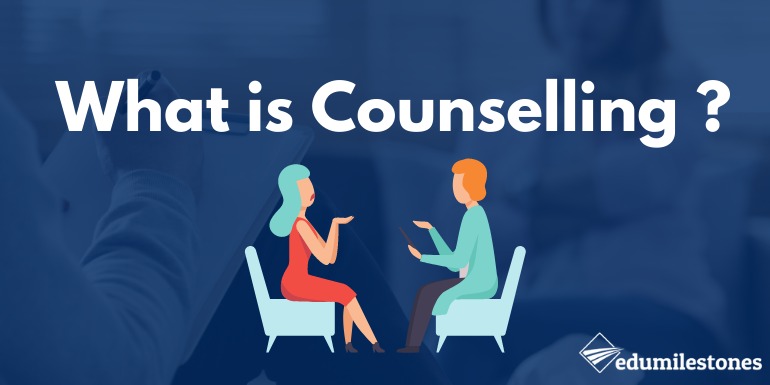A Comprehensive Guide to the Numerous Sorts Of Therapy and Their Impact
Counseling includes a variety of healing techniques, each developed to meet unique mental health requirements. From the organized methods of Cognitive-Behavioral Treatment to the compassionate nature of Person-Centered Treatment, these techniques provide distinctive pathways to personal development. Family members treatment and Dialectical Actions Treatment offer extra frameworks for recovery, while group counseling promotes community assistance. Understanding these varied methods can illuminate their profound effect on private well-being. What continues to be to be explored are the intricacies of each approach.

Understanding Cognitive-Behavioral Therapy (CBT)
Although numerous therapeutic methods exist, Cognitive-Behavioral Therapy (CBT) stands apart because of its structured, ambitious nature. This type of treatment is based upon the facility that ideas, sensations, and actions are interconnected, and by transforming adverse thought patterns, people can change their emotional actions and actions. CBT employs different methods, such as cognitive restructuring, which assists customers recognize and test distorted beliefs. Behavior activation urges involvement in satisfying tasks to combat depression.
Generally, CBT is a short-term treatment, commonly enduring between 12 to 20 sessions, making it available for those seeking quick outcomes. Its effectiveness has actually been well-documented in treating anxiety problems, clinical depression, and other mental health and wellness problems. The therapist's duty is to lead clients with workouts and research projects, promoting self-awareness and promoting long-lasting coping approaches. This functional method empowers individuals to take control of their psychological wellness, ultimately resulting in enhanced life contentment.
Discovering Person-Centered Therapy
Person-Centered Therapy, established by Carl Rogers, offers a contrasting approach to Cognitive-Behavioral Treatment by emphasizing the customer's subjective experience. This restorative version focuses on the person's point of view, cultivating an environment of compassion, unconditional favorable regard, and credibility. By permitting customers to discover their feelings and thoughts without judgment, specialists facilitate individual growth and self-discovery.
The core tenet of Person-Centered Therapy is the idea that individuals have the integral capability for self-healing and personal development. In this setting, the specialist functions as an encouraging overview instead of an instruction authority, encouraging customers to organize their own journey. This approach is specifically effective for those facing concerns such as low self-worth, anxiousness, or clinical depression, as it equips them to face and recognize their feelings. Inevitably, Person-Centered Treatment grows a strong therapeutic partnership, fostering trust fund and openness essential for purposeful adjustment.
The Role of Household Therapy in Healing
Family members therapy serves as an essential component in the healing procedure for individuals and their relationships. This therapeutic approach focuses on boosting interaction, dealing with conflicts, and promoting deeper connections among relative. By addressing dysfunctional dynamics, family treatment encourages each participant to express their thoughts and sensations in a risk-free setting, promoting understanding and compassion.

The impact of family members therapy extends beyond the sessions, as boosted partnerships can bring about improved emotional well-being for all involved. In general, family therapy plays an important duty in recovery by promoting unity, strength, and mutual assistance amongst household participants, inevitably directing them toward a healthier, a lot more fulfilling life with each other.
Unpacking Dialectical Behavior Modification (DBT)
Structure on the foundation of restorative methods that enhance emotional wellness, Dialectical Behavior modification (DBT) uses a structured structure for people battling with intense emotions and behavior challenges. Created by Marsha Linehan, DBT integrates cognitive-behavioral techniques with mindfulness techniques, aiming to aid customers manage overwhelming sensations and enhance social effectiveness.
The therapy is particularly helpful for those diagnosed with Borderline Individuality Condition yet is additionally suitable to an array of various other mental health problems. relationship therapy. DBT contains specific treatment sessions and abilities training groups, concentrating on 4 vital ability collections: mindfulness, distress tolerance, feeling regulation, and interpersonal performance
The Benefits of Group Therapy Sessions
While individual therapy gives beneficial insights, team counseling sessions offer special benefits that can greatly boost the healing experience. One crucial advantage is the feeling of community that emerges among participants. People often discover comfort in sharing their experiences with others facing comparable obstacles, fostering an encouraging environment that reduces sensations of seclusion.
Group sessions encourage diverse point of views, enabling participants to find out from each other's coping techniques and insights. This collective wisdom can bring about enhanced analytic abilities and a broader understanding of personal concerns.
In addition, group therapy commonly promotes responsibility, as members motivate each other to seek their goals and abide by their commitments. The cost-effectiveness of group treatment makes it an obtainable option for many individuals looking for assistance. Generally, the collaborative nature of group therapy sessions can greatly enrich the restorative trip.
Often Asked Questions
What Qualifications Do Therapists Required to Practice Therapy?
Specialists usually call for an appropriate degree in psychology or counseling, along with monitored clinical experience. Furthermore, they must obtain appropriate licensure or certification to exercise legitimately, guaranteeing adherence to professional standards and honest guidelines.
Exactly how Do I Choose the Right Type of Therapy for Me?
Picking the appropriate sort of treatment includes evaluating personal needs, exploring various strategies, considering therapist specialties, and seeking recommendations. Understanding individual goals and choices can greatly improve the efficiency and contentment of the therapeutic experience.

Are Online Therapy Sessions as Effective as In-Person Ones?
The performance of online counseling sessions compared to in-person ones usually depends on private preferences and scenarios. Research indicates that both methods can produce favorable outcomes, though some might locate higher comfort in face-to-face interactions.
How Much Time Does Therapy Usually Last?

What Should I Anticipate During My Initial Therapy Session?
Throughout the initial therapy session, customers can expect an introduction, conversation of their worries, establishment of goals, and an overview of the therapy process website - relationship therapy. This preliminary conference intends to develop rapport and assurance comfort